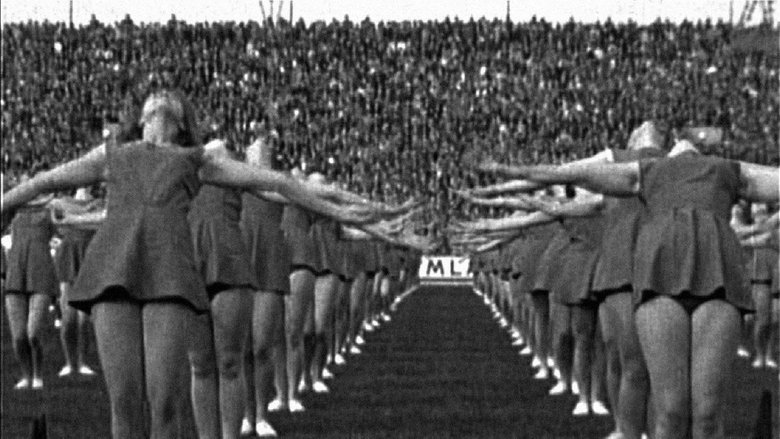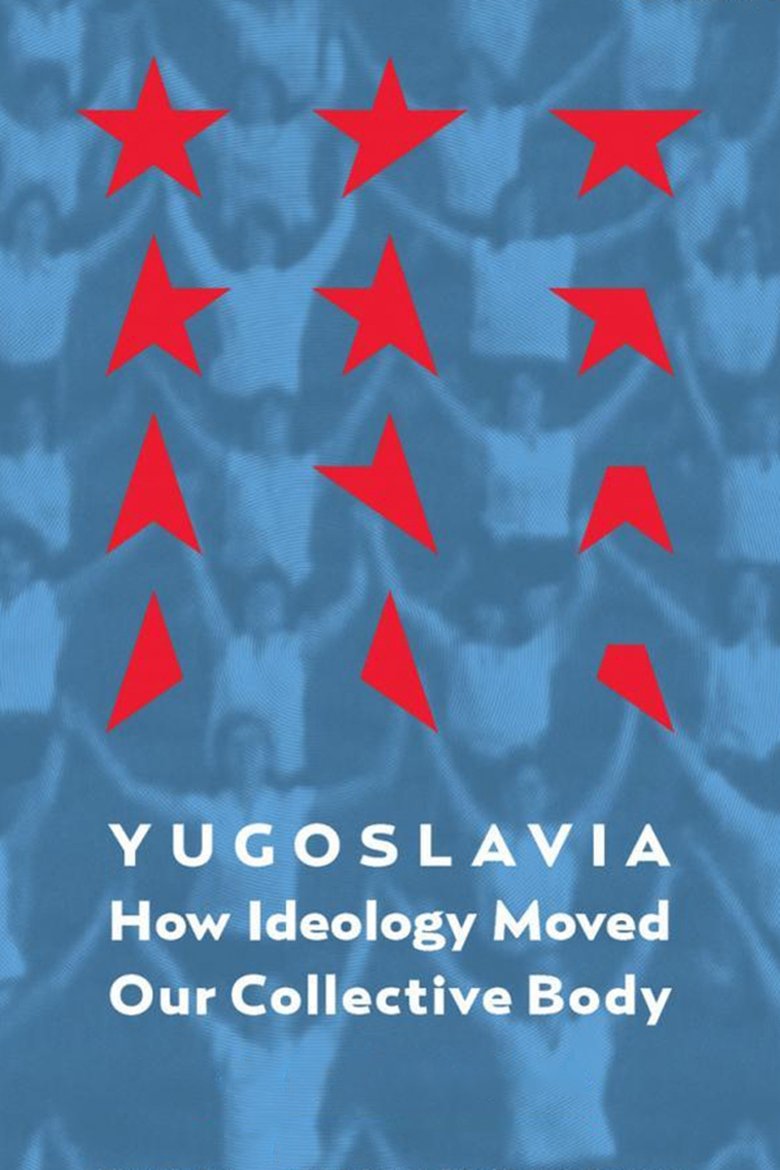

Yugoslavia: How Ideology Moved Our Collective Body
Genres
Overview
A research-based essay film, but also a very personal perspective on the history of socialist Yugoslavia, its dramatic end, and its recent transformation into a few democratic nation states.
Details
Budget
$0
Revenue
$0
Runtime
62 min
Release Date
2013-04-01
Status
Released
Original Language
Serbian
Vote Count
3
Vote Average
6.3
Josip Broz Tito
Himself
Slobodan Milošević
Himself
6.9
Olympia Part One: Festival of the Nations
Starting with a long and lyrical overture, evoking the origins of the Olympic Games in ancient Greece, Riefenstahl covers twenty-one athletic events in the first half of this two-part love letter to the human body and spirit, culminating with the marathon, where Jesse Owens became the first track and field athlete to win four gold medals in a single Olympics.
1938-04-21 | de
6.7
Olympia Part Two: Festival of Beauty
Part two of Leni Riefenstahl's monumental examination of the 1938 Olympic Games, the cameras leave the main stadium and venture into the many halls and fields deployed for such sports as fencing, polo, cycling, and the modern pentathlon, which was won by American Glenn Morris.
1938-06-02 | de
7.6
The Last Emperor
A dramatic history of Pu Yi, the last of the Emperors of China, from his lofty birth and brief reign in the Forbidden City, the object of worship by half a billion people; through his abdication, his decline and dissolute lifestyle; his exploitation by the invading Japanese, and finally to his obscure existence as just another peasant worker in the People's Republic.
1987-10-04 | en
6.7
1971
Forty years before WikiLeaks and the NSA scandal, there was Media, Pennsylvania. In 1971, eight activists plotted an intricate break-in to the local FBI offices to leak stolen documents and expose the illegal surveillance of ordinary Americans in an era of anti-war activism. In this riveting heist story, the perpetrators reveal themselves for the first time, reflecting on their actions and raising broader questions surrounding security leaks in activism today.
2014-04-18 | en
3.5
Who Is Bernard Tapie?
This documentary tells two stories simultaneously: it's a profile of Bernard Tapie, a wealthy man who rises and falls spectacularly in French society and may be on the rise again; and, it's a look at Marina Zenovich's fascination with Tapie, behaving oddly in spite of her awareness that she's being irrational. Politicians, athletes, friends, companions, and journalists comment on Bernard's charm, his rise to prominence in sports and politics, and his subsequent trouble with the law. Zenovich becomes fixated on her need to interview Tapie, becoming virtually a stalker in her quest.
2001-09-08 | en
0.0
Britain's Holocaust Survivors
They experienced perhaps the greatest crimes against humanity the world has ever seen. Yet what do we know about the Holocaust survivors who made Britain their home? Britain's Holocaust Survivors takes a unique approach to recording the experiences of the last generation to have living memories of the Holocaust. The film takes viewers into the homes of a small group of extraordinary survivors, telling their stories with sensitivity, humour and compassion. A compelling cast of characters are revealed as they gradually reveal the horror of their past and how those experiences have shaped their lives.
2013-01-27 | en
7.5
The Killing Fields
New York Times reporter Sydney Schanberg is on assignment covering the Cambodian Civil War, with the help of local interpreter Dith Pran and American photojournalist Al Rockoff. When the U.S. Army pulls out amid escalating violence, Schanberg makes exit arrangements for Pran and his family. Pran, however, tells Schanberg he intends to stay in Cambodia to help cover the unfolding story — a decision he may regret as the Khmer Rouge rebels move in.
1984-11-23 | en
0.0
People, Years, Life
Using images shot in Russia and Armenia from World War I to the 1930s and retrieved from a Soviet film archive, Gianikian and Ricci Lucchi constructed a meditative film about the status of Armenians as a people without a state. Inspired by the diary of Gianikian’s father, People, Years, Life uses rare footage depicting the region’s major historic events: the end of Tsarist Russia, violence in the Caucasus during World War I, the 1918 Armenian exodus from Azerbaijan. Gianikian and Ricci Lucchi’s treatment of the material manipulates the speed of the images, adds color and music, and magnifies various parts of the image, so that the movement of bodies across the frame begins to carry the weight of exile, mourning, dispossession.
1990-01-01 | en
5.7
Balkan Inventory
Comprised of images shot by amateur photographers and German soldiers in the Balkans from the twenties through the forties, BALKAN INVENTORY was begun by Gianikian and Ricci Lucchi in response to the tragedy unfolding in the former Yugoslavia.
2000-11-10 | it
5.0
Ghiro ghiro tondo
Inspired by their beloved Dolomite area in Northeast Italy, a battle theater in World Wars I and II, Gianikian and Ricci Lucchi continue to explore issues of war and peace in their most recent production. The film uses shots of ordinary toys found in the area, many missing limbs and other pieces, to represent, in both direct and oblique ways, the historical period between Fascism, Nazism, and the postwar era.
2007-11-24 | en
0.0
Criminal Animals
In this filmic comment on Fascist ideology - which uses footage from the recently discovered archives of Luca Comerio - invisible hands push captive animals to fight among themselves.
1994-01-01 | en
0.0
Alexej Čepička – Z vojína generálem
2009-05-27 | cs
7.2
War Dance
Three children living in a displacement camp in northern Uganda compete in their country's national music and dance festival.
2007-02-15 | en
0.0
"... und dann haben wir uns verabschiedet..." - Buttenhausen - ein Dorf zwischen 1933 und 1942
Buttenhausen, a village: 1933 - 1942 Television journalist Lea Rosh interviews residents and Jewish visitors in Buttenhausen about their memories of the coexistence of Christians and Jews in this village in the Swabian Alb. Her reports on everyday life under National Socialism shed light on the situation of the people at that time.
1985-02-02 | de
7.0
Turtles Are Always Home
I left Lebanon in 2006. For the past 10 years I lived in 7 countries, 10 cities, and 21 homes. I slept in 21 beds, cooked in 21 kitchens, cleaned 21 bathrooms, stared at 21 windows, wrote on 21 desks, and locked 21 doors behind me. I packed all of my life into two suitcases and a backpack. The rest stayed behind. Somebody somewhere uses my bed, somebody somewhere has my shoes. I was there. But now I am here.
2016-02-15 | ar
8.1
There's Still Tomorrow
In postwar Rome, a working-class woman dreams of a better future for herself and her daughter while facing abuse at the hands of her domineering husband. When a mysterious letter arrives, she discovers the courage to change the circumstances of her life.
2023-10-26 | it
6.4
Roman Polanski: Wanted and Desired
Examines the public scandal and private tragedy which led to legendary director Roman Polanski's sudden flight from the United States.
2008-01-18 | en
0.0
The Future Is Rotten
A secret culture of foragers hunt the Matsutake, a coveted Japanese mushroom worth up to $1,000 a pound—although its true value lies underground as a brilliant networker and healer of ruined landscapes. The Matsutake might just be our last, best hope for an American forest system run amok.
2020-09-25 | en
6.3
Persecution Blues: the Battle for the Tote!
In 2010, the iconic Tote Hotel – last bastion of Melbourne’s vibrant music counterculture – was forced to close by unfair laws. Filmed over 7 years, “Persecution Blues” depicts the struggle of more than 20,000 fans – and the bands who inspire them – to preserve their history and protect their future, and puts the audience on the front line of an epic-scale culture war.
2011-07-28 | en
7.1
Lee
The true story of photographer Elizabeth "Lee" Miller, a fashion model who became an acclaimed war correspondent for Vogue magazine during World War II.
2024-09-12 | en